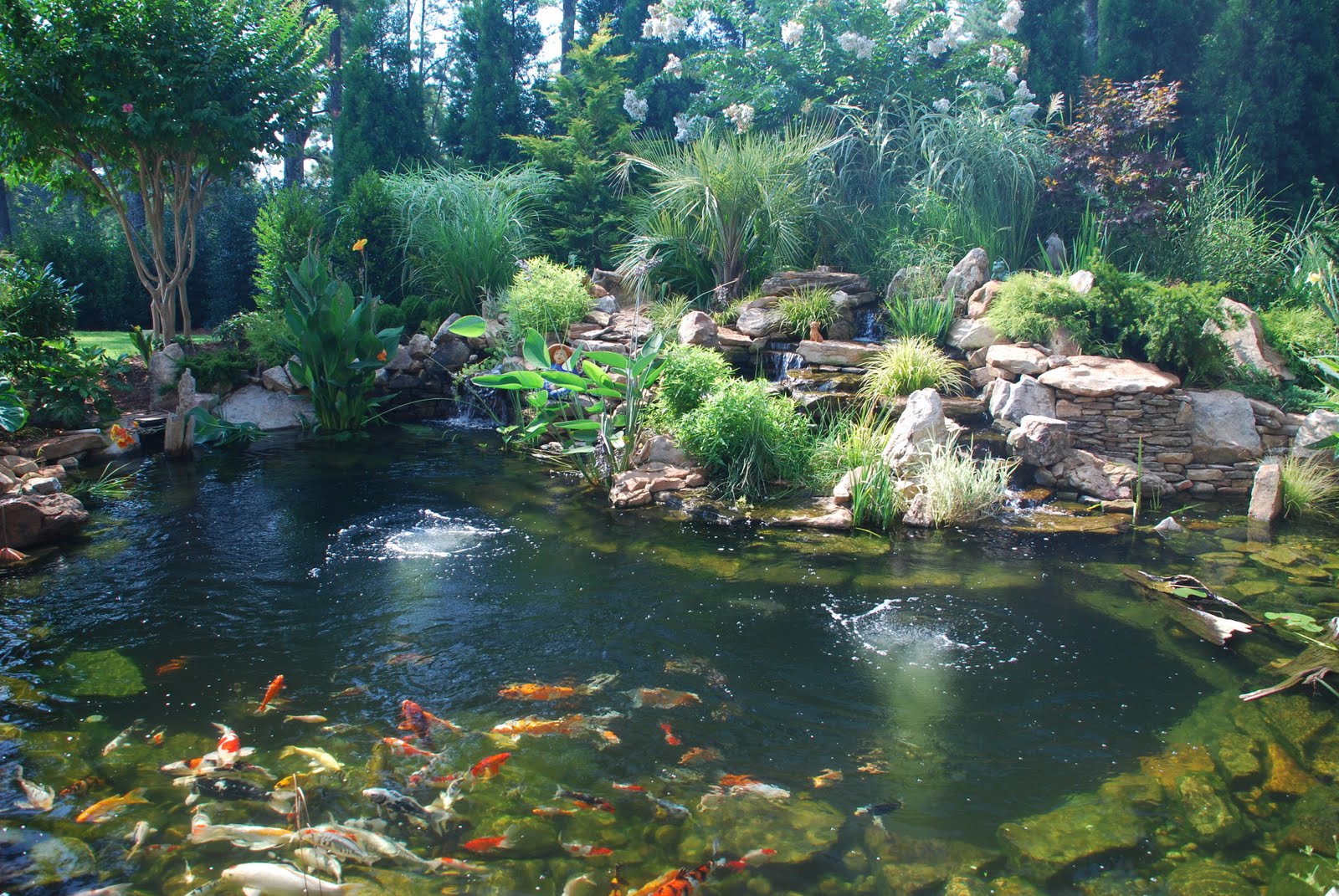
Mastering Koi Pond Water Chemistry: A Comprehensive Guide
Introduction
Koi ponds are beautiful features in gardens known for their serenity and the colorful fish they hold. Creating and maintaining a koi pond is a skill that requires expertise and dedication. One of the most important aspects of koi pond maintenance is water chemistry. Understanding and managing the chemical aspects of the pond environment is crucial to the health and longevity of the fish and other aquatic plants that inhabit the pond.

Importance of Water Chemistry in Koi Ponds
The water in a koi pond is a delicate ecosystem that is susceptible to fluctuations in chemistry which can have adverse effects on fish health. The following are some of the reasons why water chemistry is essential:
- High levels of certain chemicals can kill fish
- Low pH levels can damage the gills and skin of koi
- Water chemistry can affect the growth and development of aquatic plants
Understanding Water Chemistry in Koi Ponds
The chemistry of water in koi ponds can be complex and multifaceted. The following are some of the key aspects of water chemistry in koi ponds:
1. pH Balance
The pH level is a measure of the acidity or basicity of water on a scale of 0 to 14. The pH level in a koi pond should be slightly alkaline with a range between 7.0 and 8.5. Low pH levels can cause stress to koi, which may lead to disease and death. A high pH level can cause alkalinity, which can make the water cloudy and discolored. Therefore, it is crucial to monitor the pH level of your koi pond regularly.

2. Ammonia and Nitrite levels
Ammonia and nitrite are by-products of fish waste and uneaten food. High levels of these chemicals can be lethal to koi. For this reason, it is important to monitor the ammonia and nitrite levels of your koi pond with a test kit and maintain appropriate levels to promote the health of your fish and other aquatic plants.

3. Nitrate levels
Nitrate is another by-product of fish waste and uneaten food. High levels of nitrate can encourage the growth of algae which can spoil the appearance of your koi pond. Regular water changes can help to reduce nitrate levels. Additionally, aquatic plants can help absorb nitrate, and it is advisable to introduce plants in your koi pond to help manage nitrate levels.
How to Manage Koi Pond Water Chemistry
Managing water chemistry in a koi pond requires regular maintenance and quality products. The following are some tips to help you manage water chemistry in your koi pond effectively:
1. Regular Water Testing
Water chemistry can change rapidly in a koi pond. For this reason, it is essential to test the water regularly to identify potential problems about to happen. A water testing kit can be used to measure the ammonia, nitrite, and nitrate levels and pH of the water to determine its suitability for the fish and plants.
2. Water Changes
Regular water changes help to remove nitrate and other toxins that may accumulate in the water over time. Water changes should be done once every two weeks or as required based on pond size and the number of fish present.

3. Aquatic Plants
Aquatic plants can help to absorb nitrate and balance the pH level in your koi pond naturally. The plants also help in regulating algae growth, water circulation and shading fish from the sun.

4. Filtration System
The filtration system in a koi pond helps to maintain clean water by removing debris and toxins from the water. A good quality filtration system can ensure that koi pond water chemistry remains balanced and conducive to the health of the fish and aquatic plants.

Conclusion
Maintaining the right koi pond water chemistry is vital for the health and longevity of fish and aquatic plants in a koi pond. Regular water testing, water changes, the introduction of aquatic plants, and a quality filtration system are essential components to maintaining the right water chemistry. With these tips, you can successfully balance water chemistry in your koi pond and enjoy the serenity and beauty that koi ponds offer.